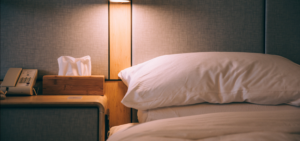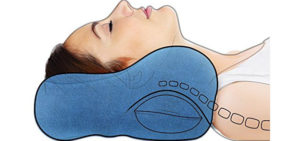Getting in regular exercises will help increase your alertness during the day, relieve stress, and help you get better sleep at night.
Although there is no specific exercise routine that you can follow to improve sleep, there are many exercise forms to improve sleep in general.
In this article, we will look at some of the best exercise routines and types that are ideal for giving you a better night’s rest, as well as an easy routine that you can follow.

Three Forms of Excercise That Improves Your Sleep
There are basically three main forms of exercises that help to improve sleep and keep you healthy;
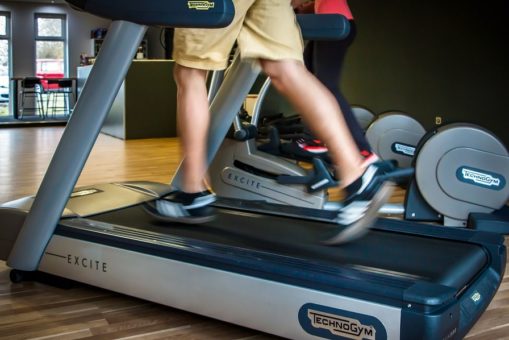
- Aeronic and Cardio Excercises – Cardio exercises such as aerobic, cycling, walking, running, and rowing are ideal for improving sleep patterns and battling insomnia. Even 10 minutes a day of cardio a day at a moderate intensity will already improve your sleep.
- Strength Training – Building muscle and core strength helps you fall asleep easier and prevents you from frequently waking up during the night. Exercises such as Shoulder [Presses, Bicep Curls, Tricep Dips, Squats, Lunges, Calf Raises, Sit-ups, and Push-ups fall in the range of strength training, among others, that help to improve your sleep.
- Yoga – Yoga is a form of exercise that employs relaxing stretches and poses, among relaxation and meditation techniques, to reduce stress and calm your breathing. Stress may be one of the major causes of your sleep deprivation and issues. Those who have insomnia are also more easily benefit from Yoga practices and exercise forms.
How Does Excercising Improve Your Sleep
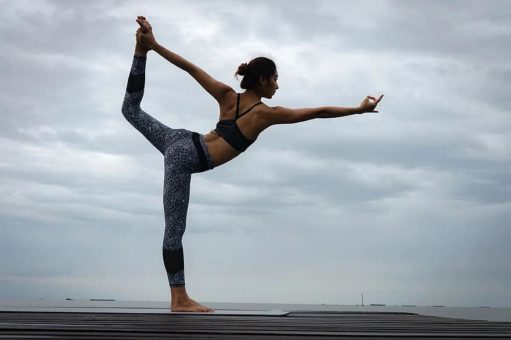
For we get to some exercise routines, let me first explain how exercising does help improve sleep patterns and insomnia.
There have been quite a few studies that all suggest that exercising significantly improves the sleep of particularly persons with chronic insomnia. A study was also made using moderate short bouts of cardio exercises, which proved to help a person fall asleep easier and reduce waking up during the night.
However, vigorous and intense workouts seemed to have a more adverse effect than moderate lower intensity workouts.
Furthermore, studies have shown that long-term exercising improved the sleep patterns of most individuals and prevented insomnia.
One of the main reasons exercise effectively prevents insomnia and provides better sleep is that it greatly reduces stress and anxiety, usually the main culprits in insomnia and sleep issues.
The Other reason why exercising improves sleep is that it greatly increases or body heat temperature for exercise. After that, there is a drop in body heat temperature, which promotes falling asleep.
There is still much to be learned about how and why Exercising improves sleep, but so far, it has been proven that most exercise routines will greatly reduce insomnia and improve your sleep patterns.
Exercise Routines to Improve Your Sleep
As we have concluded, the main thing to remember is not to perform very high-intensity vigorous exercise routines before going to bed, but rather perform moderate to light routines of lower intensity an hour or two before bedtime.
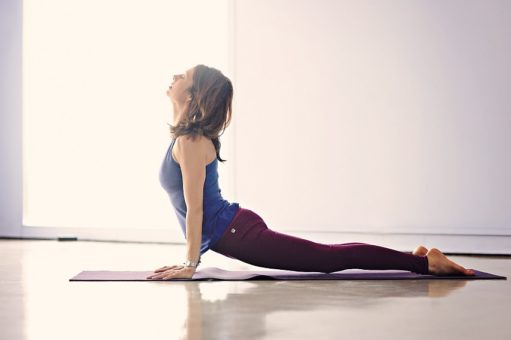
Here are a few routines that you can easily follow;
- Easy Strength Excrecises – Easy strength exercise using your own body weight or lighter weights will improve your sleep because of the raised temperature of your body, which drops with your post-exercise cool down. You can do a higher or more moderate strength training routine such as HIIT an hour or two before bed or within an hour before bed, do a few easy sit-ups, crunches, leg raises m and gets to the point of more methodical and relaxed breathing, The key is here that there must be no sudden or rapid movements before bedtime, as you do not want to get your heart rate up too high.
- Breathing Excercises – Deep Breathing exercises will improve your posture and calm you before bed. You can lay down straight flat on your back, with your trunk grounded. Take deep and slow, sustained breaths that start at the bottom of your diaphragm. Focus on filling your stomach so it sticks out, and let the oxygen expand from the bottom of your chest up to your through so your lungs will rise last. Then exhale very slowly for four counts. Do this a few times, and without any disturbances, so that you can relax.
- Yoga Excercises – You can do pretty much any Yoga routine or stretch before bed as Yoga generally improves relaxation and is a relaxing and meditating type of exercise. Just try to avoid any inversion, where your head is upside down, before bed, and maintain a proper posture.
- Visualtion Exercises – This is a mediation practice to calm your nerves and clear your mind. Take three to five minutes to sit or lay down in a relaxed position. Close your eyes, and try to think of a peaceful place or completely clear your mind. Count to one hundred, and then again backward. Keep breathing slowly with a proper posture.
- Cardio Excercises – Moderate and low-intensity cardio exercises such as cycling, rowing, running, walking, or aerobics for short bouts of about 10 to 15 minutes, and an hour or so before you sleep will also help to improve sleep and prevent insomnia.
- Stretching – Any slow and easy stretching that helps release stressed joints and muscles is conducive to sleep. Stretching your back and hips, your most high wear and tear areas are ideal. You can lie on your front and arch your back, lift your arms straight up in front of you, lift your legs straight up and hold for a few counts. A Butterfly stretch is also ideal.
In Conclusion
As you can see, you can use many different exercise routines and methods to improve sleep and prevent insomnia. Generally, the best advice I could give is to do lower intensity and moderate exercise routines that do not elevate your heart rate too much just before bed.
Short bursts of cardio exercises are also ideal, but you should do most high-intensity exercises two hours or more before bedtime.
Stretching, Yoga and Meditation are your best options in relaxation and claiming exercises if you are stressed or suffer from anxiety.
Table of Contents

